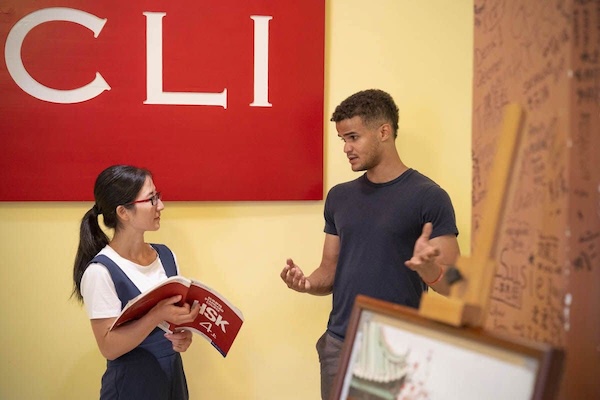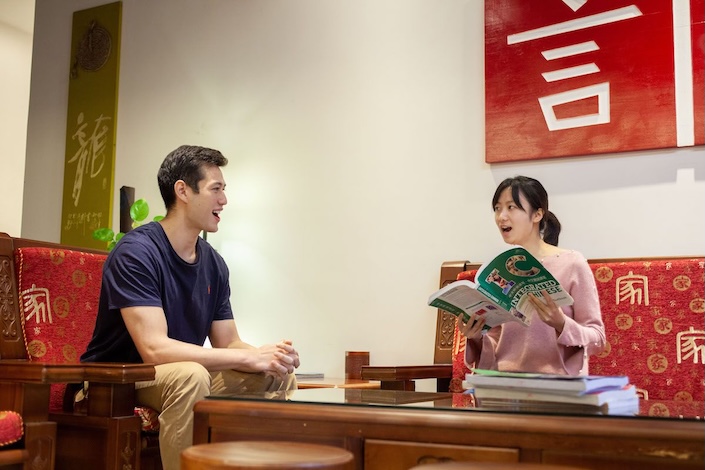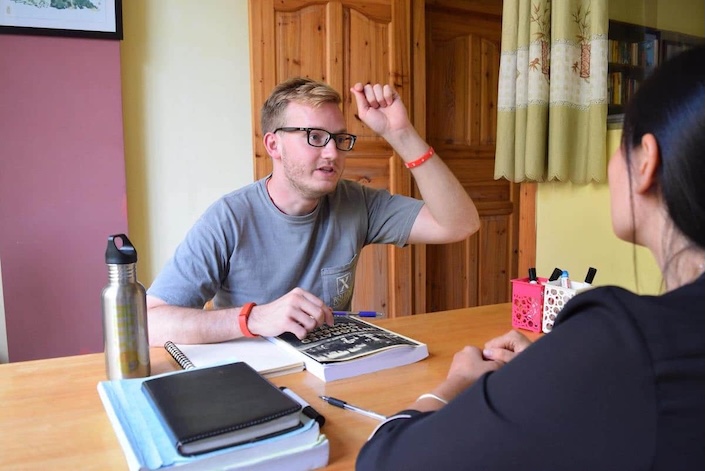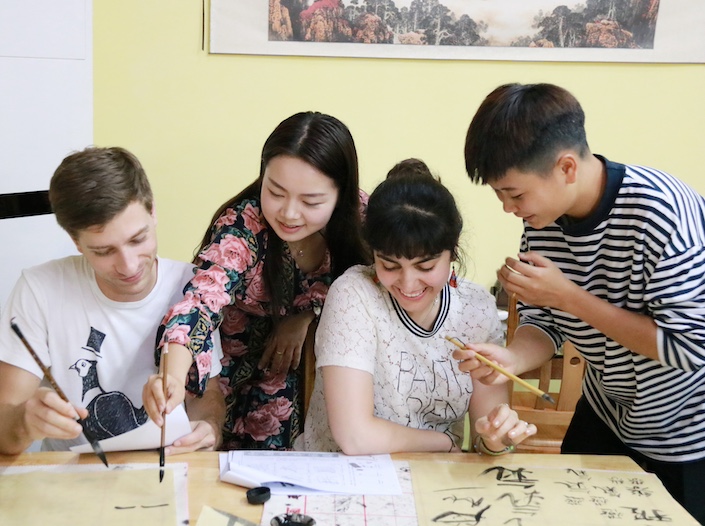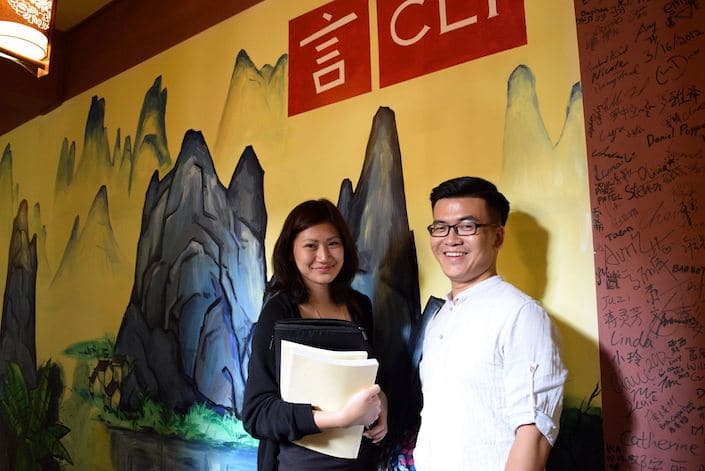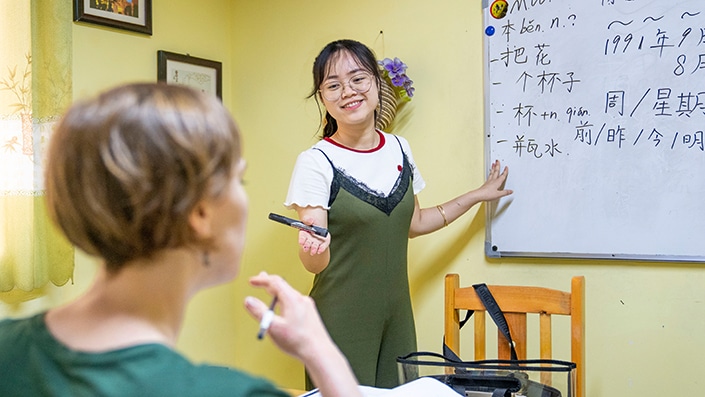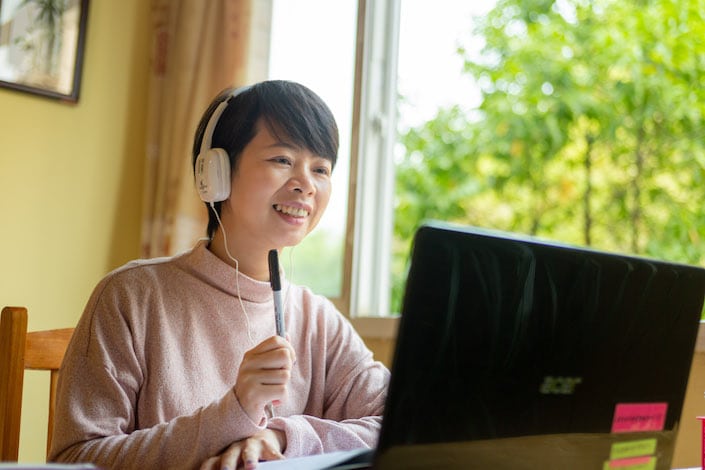Chinese Games: 十五十五二十! a.k.a. 15-15-20!
Learn Chinese in China or on Zoom and gain fluency in Chinese!
Join CLI and learn Chinese with your personal team of Mandarin teachers online or in person at the CLI Center in Guilin, China.
“Five,” she yells as her right hand opens, left hand closes, and I close both of mine. Ugh, she wins again.
“No worries,” I think to myself. “I know what she'll do next; whenever her right hand is open, her next move is always to open her left hand and call ‘ten.’ I’ll play this next round safe and open both hands.”
Here it comes… “WHAT?” She kept her hands how they were and called “fifteen!” She wins again!


0-5-10-15-20 (or shíwǔ, shíwǔ) is a great Chinese game that can be used to decide anything from who chooses tonight’s restaurant or sits in the best seat to who pays for this round of drinks or needs to take a drink now!
How to Play 15-15-20:
- The two opponents sit or stand face-to-face.
- To begin the first round, the players must decide who will start. Once that decision is made, put up your dukes and get ready—don’t worry, no one will be hit!
- At any moment, the starting player (Player 1) makes a hand motion and simultaneously calls out a number as Player 2 also makes a hand motion (but says nothing). The hand motion options for both players at this simultaneous moment are: keep both hands closed, open your left hand only, open your right hand only, or open both hands.
- At this moment, player 1 shouts out and guesses the sum total of both player's combined hands: 0/零/líng, 5/五/wǔ, 10/十/shí, 15/十五/shíwǔ, or 20/二十/èrshí
- The goal of the game is for Player 1 to call out the total sum of fingers shown by both players (0, 5, 10, 15, or 20) two times in a row. So:
- If Player 1 guesses the correct sum of fingers shown, then she is halfway to a victory. To win, she must guess the correct sum twice in a row. If she guesses incorrectly, then it is immediately Player 2's turn. Either way, both players keep their hands where they are between rounds. For example, Player 1 opens only her left hand and guesses “5,” but since Player 2 opened both hands, “5” is the wrong sum. “15” would have been correct this time, so now it is Player 2’s turn. Player 1’s left hand will remain open and right hand will remain closed until Player 2 makes his next move. Both of Player 2’s hands stay open until he makes his next move.
- Calling any mathematical impossibility counts as a single loss for that player. For example, saying “0” and showing either 5 or 10 is an automatic loss, just as saying “5” and showing 10 is also an automatic loss. Saying "10" and showing 0 is acceptable because the opponent could show 10.
- There is no limit to how long or short a player’s pause must be between rounds. For example, a player could successfully call “0” when both players are in fact showing 0, then immediately call “5” and show 5 with the hope that the opponent continues to only show 0. If the first “0” was wrong, it doesn’t matter if the second call was correct (since it would be the other player's turn).
Variation:
Some people play this game with a rhythm by stating “shíwǔ, shíwǔ, 0/5/10/15/20! ...... shíwǔ, shíwǔ, 0/5/10/15/20!”, shouting out only one of the "0/5/10/15/20" numbers as their guess. For example, when it is Player 1's turn, she could say "shíwǔ, shíwǔ, wǔ!", meaning that her guess for the round was "5/五/wǔ." Or she could say "shíwǔ, shíwǔ, líng!", meaning that her guess was ”0/零/líng“ (in which case both of her hands would have had to remained closed, with the hopes that Player 2's hands also remained closed).
Your Turn!
Now that you know how to play, be careful not to fall into predictable patterns, and don’t let your opponent know if you know what he or she is thinking! Good luck out there!!
Ready for the next level? If you really want to test your Chinese number guessing skills, check out Caima (猜码)! And if you want to learn more about the hidden meanings behind Chinese numbers, check out this article on Chinese numerology.
The CLI team is comprised of China experts with advanced degrees in China studies, teaching Chinese as a foreign language, education, and other related disciplines. Founded in 2009, CLI is a center for Chinese language and cultural studies based in scenic Guilin, China.




